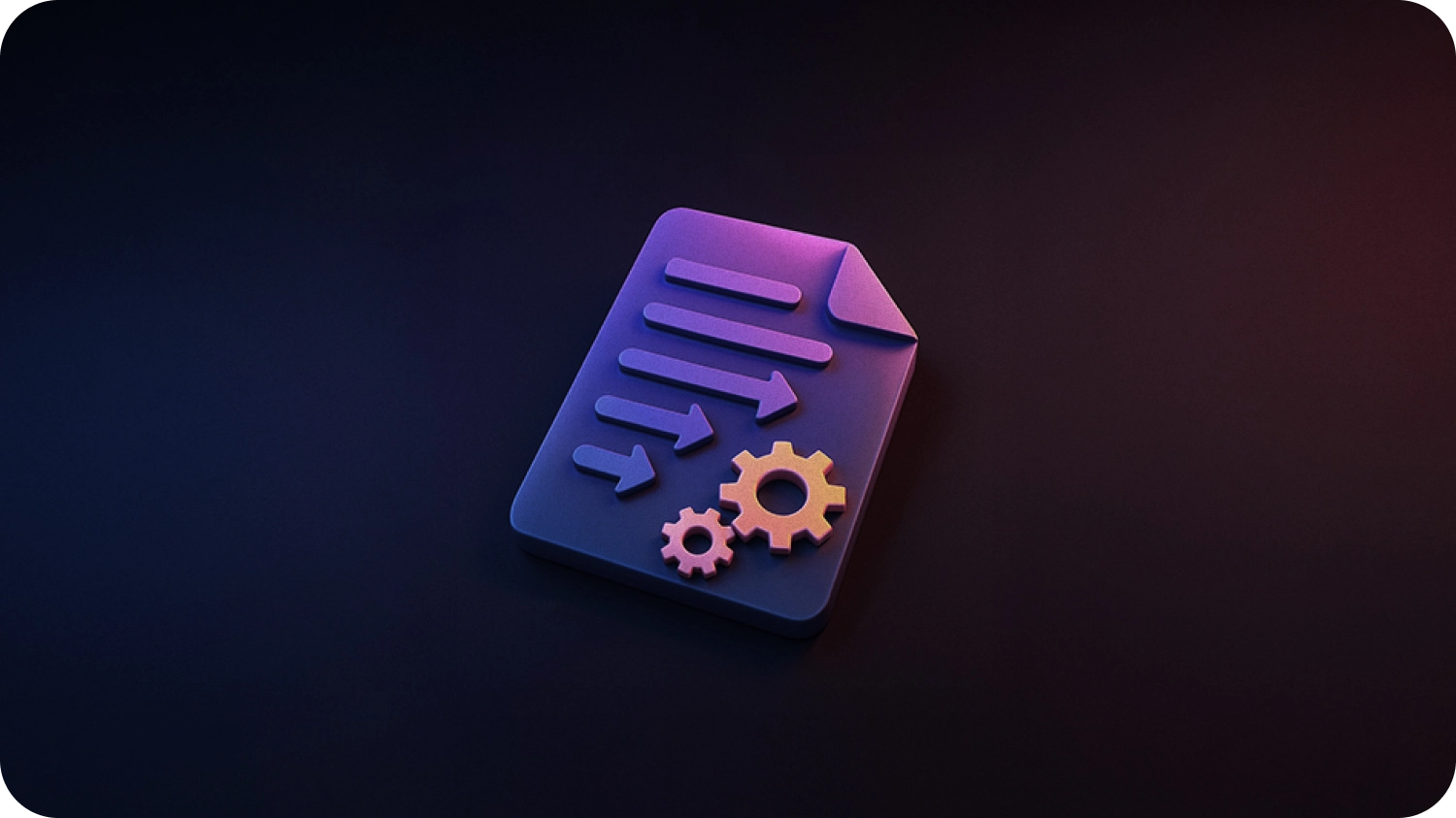It's estimated that 30% of workers spend over 23 hours per week in meetings and updating CRMs—not counting the extra time for preparation and review. With so much on the line, making every meeting count is more important than ever.
Chorus and Avoma are two popular tools designed to turn meeting conversations into actionable insights.
They've both changed the way sales and revenue teams operate by boosting performance and helping close more deals. However, recent updates tell a different story: Chorus hasn't seen significant product updates since its acquisition by ZoomInfo, while Avoma continues to evolve—albeit with a focus on SMBs, which might not be the ideal fit for growing companies or enterprises.
In this Chorus vs. Avoma comparison, we'll dive into:
- Their key features and functionalities
- Pricing models
- Target customer segments
- User reviews
Chorus vs Avoma: Consider These 3 Aspects for an Effective Comparison
1. Functionality
Things to consider:
- The core functionalities (deal intelligence, revenue intelligence, sales coaching and buyer intelligence) that you actually need
- The scope for flexibility and customizability as needed in your context
2. Adoption and usage
Think about:
- Whether the tool is easy to set up, adopt, and use as you grow/scale
- The need for dedicated admin/management/training responsibilities
3. Pricing
Factors to consider:
- Is the pricing transparent, flexible, and feasible?
- Is there a trial or free plan?
- What kind of usage mandates and payment options do you get?
Avoma vs Chorus: Feature, Functionality, and Pricing Comparison
Here’s a quick look at the main conversation intelligence, meeting efficiency and management, team collaboration, revenue intelligence, and sales coaching features that Chorus and Avoma offer.
In the rest of this Chorus vs Avoma comparison, we evaluate both Chorus and Avoma along these parameters so you have all the information you need to make a decision.
1. Meeting Intelligence (recording, transcription, note-taking)
Chorus and Avoma, like any conversation intelligence worth its name, offer call recording functionalities and AI-powered transcription and conversation analysis.
Avoma’s inbuilt editor additionally enables collaborative note-taking – which means that multiple users can edit or make notes on the same call simultaneously.
2. Meeting Management and Collaboration
Features like CRM integrations, and collaboration features (within and across teams) fall into this category.
Avoma and Chorus both boost efficiency and time savings through automated CRM entry and aid collaboration through the call sharing and snippet-sharing features.
However, when it comes to meeting efficiency, Avoma has a clear focus on meeting assistance throughout the lifecycle of a meeting.

3. Email Intelligence
Chorus offers email engagement tracking, analyzes the data, and provides actionable insights—covering both voice and email channels.
Avoma, while it does track email engagement, does not currently analyze those insights. As an AI Meeting Assistant primarily focused on conversation intelligence, Avoma’s email capabilities remain basic, reflecting its emphasis on voice interactions.
4. Revenue Intelligence
Chorus maintains an advantage in revenue intelligence with its pipeline management and forecasting tools.
Its Deal Hub also provides a comprehensive view of call maturity and potential risk factors.
Meanwhile, Avoma allows basic pipeline management but doesn’t yet offer proactive alerts for forecasted risks, indicating a more limited approach to revenue intelligence.



5. Conversation Intelligence and People Intelligence
When you think about a sales intelligence tool, you’re essential looking at the ability to extract
- Market intelligence or business-relevant information, such as competitor mentions, key objections, feature requests, etc., and
- People intelligence such as by tracking engagement and listening (talk time percentage, questions asked, monologue durations, etc.)
Both Avoma and Chorus offer this, making them ideal for customer-facing teams.
6. Sales Coaching
Chorus has coaching functionality integrated into its UI and helps
- Managers easily identify coaching moments and track the team’s (and each rep’s) performance
- Sales reps implement self-and peer learning
Avoma too, does a great job at helping sales teams implement coaching with data-powered recommendations for personalized coaching.
With both Chorus and Avoma, sales managers and reps have access to winning talk patterns, replicable talk tracks, curated playlists, and custom coaching programs – ultimately making it about how well you can use all the insights these platforms surface.
7. Adoption and Ease of Use

When it comes to ease of use, the latest G2 user ratings place Chorus at Rank 6 and Avoma at Rank 12. This difference likely reflects the fact that Chorus, now part of ZoomInfo, is heavily oriented toward enterprise-level functionality.
Avoma, on the other hand, caters more to mid-market and smaller companies looking for quick onboarding and a leaner feature set. It also offers a free trial, making it easier to test Avoma’s fit before committing.
8. Chorus vs Avoma: Pricing Comparison
We looked at three key aspects while comparing Chorus and Avoma’s pricing models: transparency, flexibility, usage mandates or base charges
Here’s what we found.
- Transparency: Avoma’s website clearly displays its pricing structure while there’s no clarity on the pricing Chorus offers. You need to contact the team and go through a qualification process to uncover the pricing that applies to you.
- Flexibility: Avoma ranks higher – simply because it offers, upfront, flexibility in pricing based on the different licenses (linked to different functionality) that different members can opt for.
- Constraints/mandates: Avoma has a minimum user requirement of three users for its basic plans.


Chorus Pricing
$10,400 for 5 Users: Sold primarily as an add-on to ZoomInfo’s suite, making it unclear whether standalone Chorus licenses are still available. This bundled approach may increase costs for those who don’t need the entire ZoomInfo platform.
Avoma Pricing
Avoma’s tiers are billed annually and offer a 14-day free trial:
- AI Meeting Assistant ($19/user/month)
- Conversation Intelligence ($59/user/month)
- Revenue Intelligence ($79/user/month)
These plans range from basic meeting assistance to more advanced features like forecasting and win/loss analysis. However, businesses needing more specialized or customizable solutions may need to explore alternatives.
9. Chorus vs Avoma: Target Audience
A good place to start would be their customer logos to get a sense of the categories their customers fall into.

As you can see, Chorus has a clear focus on enterprise teams.
Avoma on the other hand, with its pricing options, caters to SMBs and mid-market organizations.

10. Avoma vs Chorus: Customer Reviews
Here’s what users are saying about their experience with Chorus and Avoma on sites such as G2, TrustRadius,


Wrapping Up
We hope this comparison helps you decide between Avoma and Chorus for your conversation intelligence and sales coaching needs.
If you need a more traditional enterprise solution or something close to Gong, Chorus might initially seem like a suitable choice.
Avoma, on the other hand, caters primarily to mid-market businesses looking for conversation intelligence—but with limited focus on revenue and deal intelligence.
Both solutions also have constraints such as annual commitments and minimum user requirements, and neither has fully embraced the latest AI-first capabilities.
For growing companies or enterprises seeking a powerful, AI-first solution that’s both intuitive and future-ready, MeetRecord is a standout alternative.
As an agentic revenue intelligence platform, MeetRecord delivers 2.2X better ROI by combining:
- AI Sales Coaching: Automated call scoring and personalized scorecards to optimize rep performance
- Deal Intelligence: Real-time forecasting, pipeline management, and risk detection
- CRM Automation: Seamless data capture and integration for streamlined workflows
- Buyer Intelligence & AI Playbooks: Deep insights into buyer behavior, plus actionable playbooks that guide reps through every stage
MeetRecord’s advanced AI capabilities go beyond standard conversation intelligence—empowering sales teams to close deals faster, improve coaching effectiveness, and adapt to changing market demands.
MeetRecord also offers a free trial and flexible pricing. View Pricing here.
Talk to us to make conversation intelligence and sales coaching work for you – with the lowest investment and maximum flexibility.


.svg)

.png)







